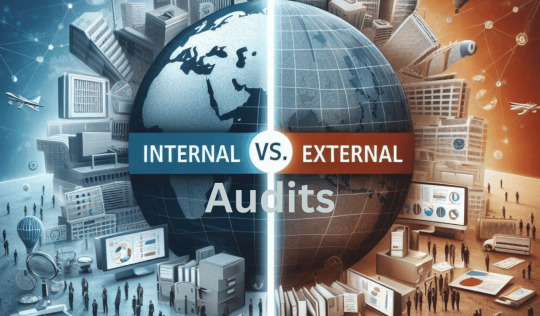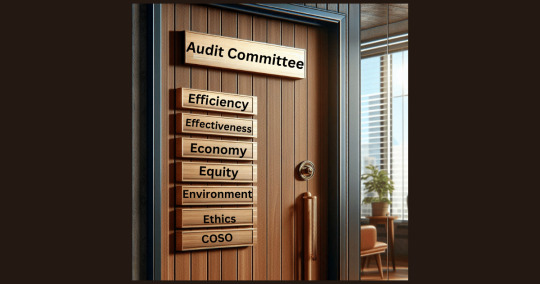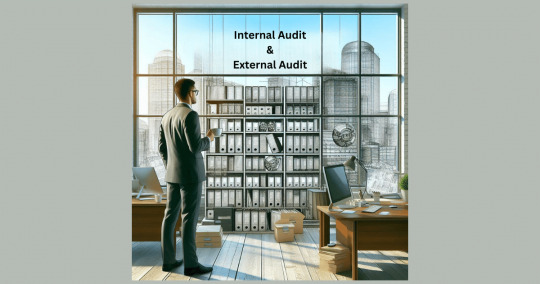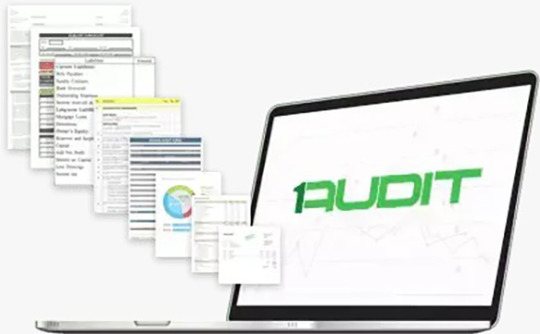#internal audit management
Explore tagged Tumblr posts
Text
Best Accounting Firms in Abu Dhabi @0502510288
Accounting and Bookkeeping Company in UAE - We are one of the best Accounting firms in Abu Dhabi, Dubai UAE provides top finance vision etc. Even though there are numerous accounting firms all over Abu Dhabi, this guide for selecting the right partner for your financial management includes top organizations.
#accountants in abu dhabi#accounting & finance expert in uae#accounting and bookkeeping companies in uae#accounting companies in abu dhabi#accounting companies in uae#accounting company in abu dhabi#accounting firms in abu dhabi#accounting firms in business bay dubai#audit firms in abu dhabi#best business consultancies in uae#best business consultants in uae#best business setup consultants in uae#bookkeeping and accounting firms in abu dhabi#business consultancy firms in uae#business consulting companies in uae#business consulting firms in dubai#business set up consultants in uae#business setup services and consultants in uae#compliance & regulatory reporting services in the uae#compliance services in uae#compliance services uae#internal audit consultants in uae#audit & assurance consultant uae#corporate banking & finance advisory in the uae#corporate finance services uae#erp advisory services in uae#financial regulatory compliance services uae#mainland business setup consultants in dubai#corporate tax planning dubai#management consulting firms in uae
0 notes
Text
Director of Internal Audit and Risk Management | Office of the Chancellor
Job title: Director of Internal Audit and Risk Management | Office of the Chancellor Company: American University of Sharjah Job description: American University of Sharjah is seeking to appoint a Director of Internal Audit and Risk Management to provide the Audit and Compliance Committee (ACC) of the BOT and Chancellor with an independent opinion on the integrity, reliability, and effectiveness…
#@Vacany#audit#director#Dubai#hiring#Jobs#management#UAE#Chancellor#internal#job in ajman#jobs in abu dhabi#jobs in dubai#jobs sharjah#office#risk
0 notes
Text
Comprehensive Accounting Solutions: Helping Your Business Thrive with Expert Services
The services page of G&S Accountancy highlights their expertise in accounting, audit, tax, and advisory services tailored to meet diverse business needs. They provide comprehensive solutions to support financial compliance, strategic growth, and effective decision-making. For blog submissions or related content, it's recommended to contact them.
Small Business Accounting Services
The services page of G&S Accountancy highlights their expertise in accounting, audit, tax, and advisory services tailored to meet diverse business needs. They provide comprehensive solutions to support financial compliance, strategic growth, and effective decision-making. For blog submissions or related content, it's recommended to contact them.
Payroll
accounting services ensure accurate calculation and timely distribution of employee wages while maintaining compliance with tax regulations. These services handle payroll processing, tax deductions, benefits administration, and reporting, streamlining operations for businesses.
Audits provide the highest level of assurance with detailed examinations of financial statements to verify their accuracy and compliance.
Reviews offer a moderate level of assurance by analyzing financial data without extensive testing.
Compilations involve preparing financial statements based on client-provided data without assurance.
Cash Flow Management Services
Effective cash flow management ensures your business maintains a healthy balance between income and expenses. This service includes monitoring, analyzing, and optimizing cash inflows and outflows to improve liquidity, reduce financial risks, and support operational needs.
Bank Financing Services
Bank financing services help businesses secure loans and credit lines to support growth, manage operations, or address cash flow gaps. These services assist in preparing financial documents, developing loan proposals, and negotiating favorable terms with lenders.
Succession Planning Services
Succession planning services help businesses ensure a smooth transition of leadership and ownership. These services involve identifying potential successors, preparing them for future roles, and creating a clear transition strategy.
New Business Formation Services
Starting a new business can be overwhelming, but professional business formation services simplify the process. These services guide entrepreneurs through legal structures, registration, tax identification, licensing, and compliance requirements.
Nonprofit Organizations Services
Non-profit organizations require specialized services to navigate complex regulations, secure funding, and maintain financial health. These services include tax-exempt status assistance, financial reporting, grant management, and compliance with IRS guidelines.
Internal Controls Services
Internal controls are essential for protecting a business's assets, ensuring financial accuracy, and preventing fraud. These services include developing systems to monitor operations, safeguard data, and comply with regulations.
Visit Here For More Info https://gns-cpas.com/service/
#Accounting Services#Tax Advisory#Financial Audits#Business Consulting#Payroll Management#Cash Flow Solutions#Tax Planning#Non-Profit Support#Business Formation#Internal Controls
0 notes
Text
Advisory Service in uae
Navigate the complexities of business with LGA Auditing, your trusted partner for advisory services in the UAE. Our experienced team offers tailored solutions to help your business grow and succeed.
Our services include:
1. Financial Advisory: Optimize your finances with expert guidance. 2. Business Setup Consulting: Seamless company formation in UAE. 3. Tax Advisory: Stay compliant with UAE tax regulations. 4. Risk Management: Mitigate risks and ensure long-term success.
Whether you're a startup or an established enterprise, we provide strategic insights to make informed decisions.
#Auditing Firm Dubai#LGA Auditing UAE#Financial Audit Services#Tax Compliance Dubai#Internal Audits UAE#External Auditing Experts#Accounting and Auditing#VAT Audits Dubai#Corporate Audit Solutions#Risk Management Dubai#Financial Statement Audit#Audit and Assurance Dubai#Business Compliance Audits#Dubai Audit Consultants
0 notes
Text
G.K. Kedia & Co.: Trusted Auditors in India for Business Growth.
In the fast-paced world of business, trust and transparency are the cornerstones of sustainable growth. For businesses in India, the journey toward achieving these critical values often starts with choosing the right auditor. One name that stands out in this domain is G.K. Kedia & Co., a firm renowned for its commitment to excellence, integrity, and reliability. Recognized as one of the most trusted auditors in India, G.K. Kedia & Co. has carved a niche in delivering exceptional audit and assurance services that empower businesses to thrive in a competitive landscape.

A Legacy of Trust and Expertise
Established with a vision to promote confidence and trust in financial systems, G.K. Kedia & Co. has consistently demonstrated its ability to meet the dynamic needs of businesses across diverse industries. Over the years, the firm has built a legacy of trust, becoming synonymous with quality and precision in auditing services.
As a leading auditor in India, G.K. Kedia & Co. specializes in providing comprehensive audit solutions that ensure compliance with statutory requirements while adding value to businesses. Their expertise extends to statutory audits, internal audits, tax audits, and special-purpose audits, catering to a wide array of corporate clients, startups, and multinational corporations.
Services That Drive Business Growth
Audit services are not just about compliance; they are also a critical tool for enhancing operational efficiency, identifying risks, and fostering informed decision-making. Understanding this, G.K. Kedia & Co. adopts a holistic approach to auditing, focusing on delivering insights that drive business growth.
Statutory Audits The firm’s statutory audit services are designed to help businesses comply with legal and regulatory requirements. By meticulously examining financial records, G.K. Kedia & Co. ensures accuracy and transparency, giving stakeholders the confidence they need in the company’s financial statements.
Internal Audits Internal audits play a pivotal role in identifying inefficiencies and risks within an organization. G.K. Kedia & Co. goes beyond traditional internal auditing by offering actionable recommendations to enhance internal controls, optimize processes, and mitigate risks effectively.
Tax Audits Compliance with tax regulations is a critical aspect of business operations in India. The firm’s tax audit services not only ensure adherence to tax laws but also help in identifying potential savings and streamlining tax planning strategies.
Special-Purpose Audits For businesses facing unique challenges or undergoing significant transitions, special-purpose audits are invaluable. G.K. Kedia & Co. tailors these audits to meet specific needs, such as due diligence for mergers and acquisitions, fraud investigations, or financial restructuring.
Why Choose G.K. Kedia & Co.?
The competitive edge of G.K. Kedia & Co. lies in its unwavering commitment to quality, its team of seasoned professionals, and its client-centric approach. Here’s why the firm is regarded as a trusted partner for businesses:
Experienced Professionals: The firm boasts a team of highly qualified auditors and consultants with extensive knowledge of Indian and international auditing standards.
Innovative Approach: Leveraging technology and modern auditing tools, G.K. Kedia & Co. delivers efficient and accurate results.
Customized Solutions: Understanding that every business is unique, the firm offers tailored solutions to meet the specific needs of its clients.
Ethical Standards: Integrity and transparency are at the core of the firm’s operations, ensuring the highest level of trust among clients and stakeholders.
Supporting Businesses Beyond Audits
In addition to its audit services, G.K. Kedia & Co. provides a range of complementary services, including tax planning, advisory, and assurance services. These offerings are designed to provide businesses with a comprehensive solution for navigating complex financial landscapes.
For startups and small businesses, the firm offers invaluable support in establishing robust financial systems, ensuring compliance, and preparing for sustainable growth. Meanwhile, for larger enterprises, G.K. Kedia & Co. plays a strategic role in enhancing governance and financial performance.
Adapting to the Digital Era
In today’s digital age, businesses are increasingly relying on technology to streamline their operations. Recognizing this trend, G.K. Kedia & Co. has embraced digital tools and analytics to enhance the efficiency and accuracy of its audit processes. By integrating technology into its services, the firm not only delivers faster results but also provides deeper insights into financial data, enabling clients to make more informed decisions.
The Role of Auditors in India’s Economic Growth
As one of the leading names in the field, G.K. Kedia & Co. exemplifies the critical role of auditors in India’s economic growth. By fostering financial transparency and accountability, the firm contributes to building a robust business ecosystem that attracts investment, drives innovation, and supports economic development.
Auditors like G.K. Kedia & Co. act as trusted advisors, guiding businesses through challenges and helping them capitalize on opportunities. Their work not only benefits individual businesses but also strengthens the broader economic framework, making India an attractive destination for global investors.
Conclusion
In a world where trust is a precious commodity, businesses need partners who can help them navigate the complexities of financial management with confidence. With its impeccable track record, commitment to excellence, and client-first approach, G.K. Kedia & Co. has earned its reputation as a trusted auditor in India.
For businesses seeking to grow, adapt, and succeed in an ever-evolving landscape, G.K. Kedia & Co. stands as a beacon of reliability and expertise. By choosing G.K. Kedia & Co., businesses are not just selecting an auditor; they are partnering with a team dedicated to driving their success.
#Financial Statement Audit#Internal Audit#Risk Management#Tax Audit#Compliance Audit#IT Audit#Specialized Audit Services
0 notes
Text
#ISO 27001 Certification#ISO 27001 Implementation#Requirements of ISO 27001#Training on IT Security Management System#ISO 27001 Consultant#ISO 27001 Audit#ISO 27001 Internal Auditor#ISO 27001 Training#ISO 27001 Consultancy
1 note
·
View note
Text
Global Business in KSA

In the Global business in ksa , success requires foresight, agility, and a deep understanding of your marketplace. MFD Business Solutions provides a powerful tool to navigate this labyrinth – Market Research. Just as ancient explorers relied on maps and star charts, businesses today turn to market research for invaluable insights, informing crucial decisions that unlock their true potential. Uncover demographics, preferences, and pain points, tailoring your offerings to resonate deeply with your audience. Discover unmet needs and potential markets, tapping into latent demand. Understand competitors’ strategies, differentiating your brand and gaining a competitive edge. Stay ahead of the curve by adapting to emerging trends and changing consumer trends.
please visit:
#marketing#accounting#success#finance#sales#global business in KSA#Internal Audit in KSA#offshore company formation services in KSA#cash count management in KSA#changing regulations in KSA#company liquidation in KSA#company policy and procedures in KSA#feasibility studies in KSA#forensic audit in KSA#forms of corporate restructuring in KSA
0 notes
Text
What is an APQP Checklist?
An Advanced Product Quality Planning (APQP) checklist is a vital tool used in various industries to ensure the systematic development of products and processes. It serves as a comprehensive guide to managing quality throughout the product lifecycle, from initial design to production and beyond.
Importance of APQP in Quality Management
APQP plays a crucial role in maintaining product quality and customer satisfaction. By following a structured approach outlined in the checklist, organizations can:
Ensure Product Quality: APQP helps in identifying potential risks and quality issues early in the product development stage, allowing for timely mitigation measures.
Reduce Defects and Rework: Through thorough planning and risk assessment, APQP aims to minimize defects and rework, thereby reducing overall production costs.
Understanding the APQP Checklist
An APQP checklist is a document that outlines the necessary steps and requirements for implementing APQP processes effectively. It typically includes:
Definition: A clear definition of APQP and its objectives.
Components of the Checklist: Sections covering various aspects such as planning, design, process validation, and production.
Benefits of Using an APQP Checklist
The utilization of an APQP checklist offers several benefits, including:
Streamlining Processes: By following a structured approach, organizations can streamline their product development and manufacturing processes.
Enhancing Communication: The checklist facilitates effective communication among cross-functional teams, ensuring everyone is aligned with project requirements.
Facilitating Risk Management: APQP checklist helps in identifying and mitigating risks early in the product lifecycle, reducing the likelihood of costly failures.
How to Develop an Effective APQP Checklist
Developing an effective APQP checklist involves several key steps:
Gathering Relevant Information: Collecting necessary data and information related to product requirements, customer expectations, and regulatory standards.
Involving Cross-Functional Teams: Engaging representatives from various departments to ensure comprehensive input and buy-in.
Establishing Clear Criteria and Metrics: Defining specific criteria and metrics for evaluating product quality and process performance.
Implementing the APQP Checklist in Different Industries
APQP principles can be applied across various industries, including:
Automotive Sector: APQP is widely used in the automotive industry to ensure the quality and safety of vehicles.
Aerospace Industry: Aerospace companies utilize APQP to meet stringent regulatory requirements and ensure the reliability of aircraft components.
Healthcare Sector: In healthcare, APQP helps in developing safe and effective medical devices and pharmaceutical products.
Common Mistakes to Avoid When Using APQP Checklist
While APQP checklist offers numerous benefits, organizations must avoid common pitfalls such as:
Lack of Stakeholder Involvement: Failure to involve key stakeholders from different departments can lead to oversight and suboptimal outcomes.
Failure to Update the Checklist Regularly: An outdated checklist may not reflect current industry standards or regulatory requirements, compromising its effectiveness.
Ignoring Feedback and Improvement Opportunities: Organizations should actively seek feedback from users and stakeholders to identify areas for improvement and refinement.
Examples of APQP Checklist Templates
There are various APQP checklist templates available, ranging from basic to advanced, tailored to specific industry requirements.
Basic Checklist Template: Includes essential steps and requirements for implementing APQP processes.
Advanced Checklist Template: Incorporates additional features such as risk assessment matrices and validation protocols.
Tips for Maximizing the Effectiveness of APQP Checklist
To derive maximum benefit from APQP checklist, organizations should:
Provide Adequate Training: Ensure that employees are trained in APQP principles and understand how to use the checklist effectively.
Regular Audits and Reviews: Conduct periodic audits and reviews to assess compliance with APQP processes and identify areas for improvement.
Continuous Improvement Initiatives: Encourage a culture of continuous improvement, where feedback is solicited, and lessons learned are applied to enhance processes.
Case Studies: Successful Implementation of APQP Checklist
Several organizations have successfully implemented APQP checklist, resulting in improved product quality and customer satisfaction.
Future Trends in APQP Checklist Development
As technology advances and industry requirements evolve, APQP checklist development is expected to incorporate:
Integration with Digital Tools: Increasing integration with digital tools and software platforms to streamline APQP processes and enhance collaboration.
Emphasis on Sustainability: Incorporating sustainability criteria and metrics into APQP checklist to address growing environmental concerns.
Conclusion
In conclusion, an APQP checklist is a valuable tool for organizations seeking to ensure product quality, minimize risks, and enhance customer satisfaction. By following a structured approach outlined in the checklist, businesses can streamline their product development processes and stay competitive in today's dynamic market.
FAQs
What is the role of APQP in quality management?
APQP plays a crucial role in maintaining product quality by identifying potential risks and quality issues early in the product development stage.
How can organizations develop an effective APQP checklist?
Developing an effective APQP checklist involves steps such as gathering relevant information, involving cross-functional teams, and establishing clear criteria and metrics.
In which industries is APQP commonly used?
APQP principles can be applied across various industries, including automotive, aerospace, and healthcare sectors.
What are some common mistakes to avoid when using an APQP checklist?
Common mistakes include lack of stakeholder involvement, failure to update the checklist regularly, and ignoring feedback and improvement opportunities.
How can organizations maximize the effectiveness of APQP checklist?
Organizations can maximize effectiveness by providing adequate training, conducting regular audits and reviews, and fostering a culture of continuous improvement.
#Software Development India#Software Company Chennai#Best Software Product Companies in Chennai#Software Service Providers in Chennai#software companies in Anna Nagar Chennai#APQP Software#ppap software#dms software#best document manager software#internal audit software#coq software#spc software#msa software#fmea software#ccm software#gcs software#vqms software#sqms software.
0 notes
Text
Unlocking Clarity: Internal vs. External Audits Demystified | 10 Years of Expert Insight!
Unlocking Clarity: Internal vs. External Audits Demystified | 10 Years of Expert Insight!
Discover the nuances between internal and external audits. Gain valuable insights for a robust audit strategy. Your go-to guide! | Deciphering audits for success.

Internal Audit and External Audit: Understanding the Key Distinctions
In the realm of corporate governance and financial management, audits play a pivotal role in ensuring transparency, accuracy, and compliance with regulations. Two primary forms of audits, internal and external, serve distinct purposes within organizations. Understanding the differences between internal audit and external audit is essential for stakeholders, management, and regulatory bodies alike. In this comprehensive guide, we delve into the intricacies of both types of audits, exploring their scope, methodologies, and contributions to organizational governance.

1. Introduction to Internal and External Audit
1.1. Defining Internal Audit
Internal audit constitutes an independent, objective assurance and consulting activity designed to add value and improve an organization’s operations. It helps an organization accomplish its objectives by bringing a systematic, disciplined approach to evaluate and improve the effectiveness of risk management, control, and governance processes.
1.2. Defining External Audit
External audit, on the other hand, is an independent examination of financial information of any entity, whether profit-oriented or not, irrespective of its size or legal form, when such an examination is conducted with a view to expressing an opinion thereon. It is conducted by an external auditor, who is appointed by the shareholders or governing body of an organization.

2. Purpose and Scope
2.1. Internal Audit Purpose
Internal audits are conducted to evaluate and improve the effectiveness of risk management, control, and governance processes within an organization. They provide insights into operational efficiency, compliance with policies and procedures, and the overall management of risk across various business functions.
Summary
Focus on Organizational Processes.
Delving into the intricacies of day-to-day operations.
Identifying inefficiencies and proposing enhancements.
Evaluating Internal Controls.
Scrutinizing the effectiveness of internal control mechanisms.
Mitigating the risk of fraud and operational lapses.
Risk Management.
Proactively managing risks inherent in business processes.
Developing strategies for risk mitigation and resilience.
2.2. External Audit Purpose
External audits primarily focus on providing assurance to stakeholders regarding the accuracy and reliability of financial statements. They verify the fairness of financial presentations and ensure compliance with relevant accounting standards and regulatory requirements.
Summary
Financial Statement Examination.
In-depth analysis of financial records and transactions.
Ensuring accuracy and reliability of financial reporting.
Compliance Verification.
Verifying adherence to legal and regulatory requirements.
Providing stakeholders with assurance on compliance.
Stakeholder Assurance.
Assuring external parties of the organization’s financial health.
Fostering trust among shareholders and investors.

3. Authority and Independence
3.1. Internal Audit Authority
Internal audit functions typically report to the highest levels of management within an organization, such as the board of directors or audit committee. They operate independently from operational areas to maintain objectivity and impartiality in their assessments.
Summary
Direct Reporting to Management.
Reporting directly to the organization’s management.
Facilitating immediate corrective actions.
Advisory Role.
Serving as an advisory body to improve internal processes.
Providing insights for strategic decision-making.
Employed by the Organization.
Internal auditors as part of the organizational structure.
Potential for internal biases and conflicts.
Potential Bias Concerns.
Navigating challenges associated with internal allegiances.
Striving for objectivity within the organizational context.
3.2. External Audit Authority
External auditors are appointed by shareholders or governing bodies and report directly to them. This independence from the organization ensures an unbiased evaluation of financial statements, enhancing the credibility of the audit process.
Summary
Independent Reporting to Shareholders.
Maintaining independence from internal biases.
Reporting findings directly to shareholders.
Regulatory Compliance Focus.
Emphasizing adherence to legal and regulatory standards.
Offering an objective assessment of compliance.
Independent from the Organization.
External auditors operate autonomously.
Minimizing biases and conflicts of interest.
Objective Evaluation.
Delivering an objective assessment of financial matters.
Prioritizing external stakeholders’ interests.
"Americans like to make money; Canadians like to audit it. I know no other country where accountants have a higher social and moral status." Northrop Frye
4. Focus Areas
4.1. Internal Audit Focus
Internal audits concentrate on evaluating operational efficiency, ensuring compliance with internal policies and procedures, and identifying areas of potential risk. They delve into the intricacies of day-to-day processes to enhance overall organizational performance.
Summary
Process Improvement.
Prioritizing the enhancement of internal processes.
Contributing to organizational efficiency and effectiveness.
Operational Efficiency.
Identifying opportunities for streamlining operations.
Addressing challenges that impact day-to-day efficiency.
4.2. External Audit Focus
External audits primarily focus on the accuracy of financial statements, compliance with accounting standards, and the detection of fraud or misstatements. The emphasis is on providing stakeholders with confidence in the financial information presented by the organization.
Summary
Financial Accuracy.
Ensuring precision in financial reporting.
Verifying the accuracy of financial statements.
Compliance Assurance.
Providing assurance on adherence to legal and regulatory standards.
Delivering confidence to external stakeholders.

5. Reporting Structure
5.1. Internal Audit Reporting
Internal audit reports are directed to the management of the organization. These reports include recommendations for improvement in processes, controls, and risk management based on the findings of the audit.
Summary
Direct Reporting to Management.
Reporting directly to the organization’s management.
Facilitating immediate corrective actions.
Advisory Role.
Serving as an advisory body to improve internal processes.
Providing insights for strategic decision-making.
5.2. External Audit Reporting
External auditors provide reports directly to the shareholders or the board of directors. These reports contain opinions on the fairness of the financial statements and the adherence to accounting principles.
Summary
Independent Reporting to Shareholders.
Maintaining independence from internal biases.
Reporting findings directly to shareholders.
Regulatory Compliance Focus.
Emphasizing adherence to legal and regulatory standards.
Offering an objective assessment of compliance.

6. Frequency and Timing
6.1. Internal Audit Frequency
Internal audits can be conducted on an ongoing or periodic basis, depending on the organization’s needs. They are not limited to specific timeframes and can be scheduled throughout the year.
Summary
Continuous or Periodic.
A continuous process with ongoing assessments.
Periodic deep dives into specific operational areas.
Regular Assessments.
Ensuring ongoing alignment with organizational goals.
Real-time monitoring for effective risk management.
6.2. External Audit Frequency
External audits are typically an annual requirement, timed after the completion of financial periods. This ensures a comprehensive examination of the financial statements at the end of each fiscal year.
Summary
Annual or Periodic.
Typically conducted annually or periodically.
Focused on the financial year-end for comprehensive reviews.
Focused on Financial Year-End.
Ensuring the accuracy of year-end financial statements.
Aligning with regulatory reporting timelines.

7. Key Personnel and Teams
7.1. Internal Audit Team
Internal audit teams are usually employed by the organization itself. They report to the board or audit committee and are intimately familiar with the organization’s internal processes and controls.
7.2. External Audit Team
External audit teams, on the other hand, are independent audit firms hired by shareholders or the board. This independence ensures an unbiased evaluation of financial statements and internal controls.

8. Risk Management and Compliance
8.1. Internal Audit Role in Risk Management
Internal audits play a crucial role in identifying and mitigating risks associated with operational processes. They ensure compliance with internal policies and procedures, reducing the likelihood of financial and operational setbacks.
Summary
Operational Risks.
Identifying and mitigating risks associated with operations.
Enhancing operational resilience through proactive measures.
Internal Fraud.
Addressing the risk of internal fraud and misconduct.
Safeguarding organizational assets and resources.
8.2. External Audit Role in Risk Management
External audits focus on assessing financial risks and verifying compliance with accounting standards. While they may not delve as deeply into operational risks, they contribute significantly to overall risk management by ensuring financial accuracy.
Summary
Financial Misstatements.
Vigilantly assessing the risk of financial inaccuracies.
Providing assurance on the accuracy of financial records.
Non-Compliance Risks.
Identifying risks associated with non-compliance.
Assuring stakeholders of the organization’s commitment to compliance.

9. Documentation and Record Keeping
9.1. Internal Audit Documentation
Internal audit documentation is detailed and comprehensive, encompassing reports and findings, process flows, and control assessments. This documentation serves as a foundation for improving internal processes.
9.2. External Audit Documentation
External audit documentation primarily includes audited financial statements, working papers, and test documentation. These documents provide evidence of the audit process and support the auditor’s opinions on financial statements.

10. Confidentiality and Disclosure
10.1. Internal Audit Confidentiality
Internal audit findings are typically kept confidential within the organization. The focus is on improving internal processes, and disclosure is limited to the management or specific departments involved.
Summary
Internal Information Handling.
Safeguarding internal information with stringent confidentiality measures.
Balancing transparency with the need for confidentiality.
Limited External Disclosures.
Minimizing external disclosures of internal processes.
Prioritizing the security of sensitive organizational information.
10.2. External Audit Disclosure
External audits involve public disclosure of financial statements. The information provided in external audit reports is accessible to external stakeholders, ensuring transparency and accountability.
Summary
Public Disclosures.
Adhering to regulatory requirements for public disclosures.
Balancing transparency with legal obligations.
Limited Confidentiality.
Navigating constraints related to public disclosures.
Emphasizing the importance of transparency within legal bounds.

11. Regulatory Oversight and Compliance
11.1. Internal Audit Regulation
Internal audits may be conducted to ensure compliance with internal controls and policies, often voluntarily or as mandated by industry standards. Regulatory oversight is generally limited to specific sectors or industries.
Summary
Internal Policies.
Guided by internal policies and organizational guidelines.
Adhering to industry-specific standards.
Industry Guidelines.
Aligning with industry benchmarks and best practices.
Navigating sector-specific regulatory landscapes.
11.2. External Audit Regulation
External audits are mandated by government regulations, and regulatory bodies often oversee the auditing profession. Compliance with accounting standards is a critical aspect of external audit regulations.
Summary
Statutory Requirements.
Mandated by statutory regulations governing external audits.
Ensuring compliance with universally accepted accounting principles.
Compliance with Accounting Standards.
Adhering to international accounting standards.
Providing a standardized framework for financial reporting.

12. Cost and Resource Allocation
12.1. Internal Audit Costs
Internal audit costs are typically incorporated into the operational budgets of organizations. The allocation of resources depends on the size and complexity of the organization.
Summary
In-House Expenses.
Involving internal personnel and resources.
Managing costs associated with internal audits.
Resource Allocation.
Allocating internal resources for audit activities.
Balancing costs with the benefits of continuous internal oversight.
12.2. External Audit Costs
External audit costs involve contractual fees paid to audit firms. The fees are based on the complexity and scope of the audit, reflecting the level of effort required by the external audit team.
Summary
External Firm Fees.
Engaging external audit firms for independent reviews.
Incurring fees for external expertise.
Cost of Compliance.
Balancing the costs associated with ensuring compliance.
Weighing the benefits of external assurance against financial outlays.

13. Value Addition and Benefit
13.1. Internal Audit Value Addition
Internal audits add value by identifying process improvements, strengthening internal controls, and providing insights into operational efficiency. Their focus on internal processes enhances overall organizational effectiveness.
13.2. External Audit Value Addition
External audits enhance financial transparency by ensuring the accuracy of financial statements. Their opinions provide assurance to stakeholders and investors, contributing to the overall credibility of the organization.

14. Challenges and Limitations
14.1. Internal Audit Challenges
Internal audits may face challenges such as limited resources and budgets. Ensuring independence from management while working closely with operational areas can also pose challenges.
14.2. External Audit Challenges
External audits encounter challenges related to the complexity of financial transactions and the evolving landscape of regulatory requirements. Staying abreast of changes is crucial for maintaining audit effectiveness.

15. Collaboration and Communication
15.1. Internal Audit Collaboration
Internal audits involve collaboration with various departments and levels of management. They play a key role in facilitating process improvement initiatives by working closely with operational areas.
Summary
Immediate Corrections.
Implementing swift corrective actions based on findings.
Addressing identified weaknesses promptly.
Continuous Improvement Plans.
Developing long-term strategies for ongoing improvement.
Fostering a culture of continuous enhancement.
15.2. External Audit Communication
External audits require effective communication with management and audit committees. Providing feedback and recommendations based on audit findings is essential for ensuring continuous improvement.
Summary
Compliance Recommendations.
Offering recommendations for addressing compliance gaps.
Providing a roadmap for achieving and maintaining compliance.
Legal Consequences.
Highlighting potential legal consequences of non-compliance.
Emphasizing the importance of proactive adherence to regulations.

16. Continuous Improvement and Evolution
16.1. Internal Audit Evolution
Internal audits evolve by embracing technology and automation. The incorporation of data analytics and artificial intelligence enhances the efficiency and effectiveness of internal audit processes.
Summary
Iterative Assessments.
Conducting iterative assessments for ongoing improvement.
Adapting audit methodologies based on lessons learned.
Adaptive Strategies.
Developing adaptive strategies for dynamic organizational environments.
Embracing change as a catalyst for improvement.
16.2. External Audit Evolution
External audits adapt to changes in accounting standards and regulations. Leveraging technology for audit efficiency, they stay at the forefront of industry best practices to ensure thorough and accurate evaluations.
Summary
Yearly Reflections.
Reflecting on annual audit processes for improvement.
Incorporating lessons learned into future audit engagements.
Industry Benchmarking.
Benchmarking against industry standards and best practices.
Contributing to the evolution of external audit practices.

17. Industry Best Practices
17.1 Internal Audit Best Practices
Internal audit best practices include adopting COSO frameworks for internal controls and implementing risk-based auditing approaches. These practices ensure a systematic and effective audit process.
17.2. External Audit Best Practices
External audit best practices involve adhering to Generally Accepted Auditing Standards (GAAS) and Generally Accepted Accounting Principles (GAAP). Upholding professional ethics and independence is paramount.

18. Training and Professional Development
18.1. Internal Audit Training
Internal audit professionals undergo continuous professional education. Certification programs such as Certified Internal Auditor (CIA) and Certified Information Systems Auditor (CISA) contribute to their expertise.
18.2. External Audit Training
External audit professionals obtain certifications such as Certified Public Accountant (CPA). Ongoing professional development requirements ensure they stay current with industry standards and regulations.

19. Emerging Trends and Technologies
19.1. Internal Audit Trends
Emerging trends in internal audit include the use of data analytics and artificial intelligence. Internal audits are increasingly focusing on cybersecurity audits to address evolving threats.
19.2 External Audit Trends
External audit trends encompass the integration of blockchain technology and the use of data analytics for fraud detection. These advancements enhance the accuracy and efficiency of external audit processes.

20. Conclusion
In conclusion, the differences between internal audit and external audit are multifaceted, each serving a unique purpose within the realm of organizational governance. While internal audits focus on operational efficiency, risk management, and compliance, external audits provide assurance regarding the accuracy of financial statements and adherence to accounting standards. It is crucial to recognize the complementary nature of these audits, with each contributing significantly to the overall health and credibility of an organization.

#accounting#banking#finance#investment#cfo#financial accounting#personal finance#financial literacy#financial modeling#financial planning#Internal Audit#External Audit#auditing#risk management#Internal Controls
0 notes
Text
Why Your Business Needs a VAT Consultant in Dubai
The subject of fixed taxes is very sensitive in the present world, especially when the companies are on the move. It has become a prerequisite to manage the organizations and to follow all the regulations since the implementation of Value Added Taxation (VAT) in United Arab Emirates in the year 2018. Currently, marketing in Dubai is one of the most developed in the region and businesses cannot afford large errors.
That is why accounting firms in Abu Dhabi become extremely important at this step. It is in this blog that we speak of the importance of VAT consultation in Dubai, why it is important to deal with a qualified agency in this field, and why this path is useful for your business.
1. Understanding VAT Regulations
Value Added Tax, or VAT is a consumption tax is levied upon the concept of value additions that transpire in the course of production or circulation. The normal VAT rate applied in the United Arab Emirates is 5 percent. However, that might sound easy; value-added tax laws are challenging to impose because they are couched in relative pecuniary flexibility, which changes with respect to the business, sector, and type of transaction.
Businesses that don't have a thorough understanding of local tax rules find handling VAT compliance to be a nightmare. The VAT consulting organizations situated in the United Arab Emirates are skilled at understanding the specifics of these laws. An accounting company in Abu Dhabi will assist your company in managing these complexities and staying up to date on any modifications or new decisions issued by the Federal Tax Authority.
2. Decreasing the Threat of Non-Compliance
Value Added Tax laws impose hefty fines, penalties, and occasionally even legal consequences for noncompliance. Missed deadlines and inaccurate VAT filing are just two examples of mistakes that will cost your business severely. Even small mistakes might result in significant financial loss and harm to your company's image.
By working with an accounting company in Abu Dhabi, you may reduce the risks of non-compliance in this regard. You will receive registration guidance, exact return preparation, and records that properly adhere to legal requirements from a group of tax professionals. In order for you to properly handle compliance issues and avoid missing any deadlines, they will also offer extra assistance. Your company will avoid costly errors and maintain a positive relationship with the FTA in this way.
3. Cash Flow Optimization
Maintaining appropriate cash flow is one of the key concerns and, in fact, the goal of any organization, and VAT has a significant impact on this. Consulting firms for VAT in Dubai assist you in optimizing your cash flow by suggesting effective VAT recovery strategies. This is crucial for a company that imports, exports or conducts substantial transactions.
They make sure your company is reporting VAT where it is due and that you are not overpaying. Additionally, the audit & assurance consultant UAE may help you organize your transactions to minimize your VAT duty and optimize recovery, which will improve the cash flow of your company.
4. VAT Strategies Tailored to Suit Your Business
A one-size-fits-all strategy for VAT compliance can be incredibly ineffective because every organization is different. Professional VAT consultancy in Dubai takes the time to understand your company's operations, sector, and unique requirements. Based on that information, it then offers customized solutions that are suited to the VAT needs of your business.
A reputable audit & assurance consultant in UAE will assist you in aligning your tax tactics with your business goals, regardless of how big or small your company is. This will include efficient supply chain management for VAT, efficient tax planning, and tailored solutions for international transactions.
5. Focus on Core Business Functions
It takes a lot of effort to manage VAT compliance internally, which takes resources from the main operation. It takes a lot of effort and experience to file VAT, understand the new rules, and guarantee that tax returns are accurate. In this situation, it is preferable to hire experts to handle the VAT compliance job rather than using your own internal resources so that you may concentrate on the expansion of your company.
All compliance issues, from filing returns to providing advice on complex tax issues, can be handled by these VAT consultants. You will no longer have to worry about VAT compliance, freeing you up to concentrate on market share growth, client acquisition, and innovation.
Conclusion
VAT compliance is a different story when it comes to companies in Dubai because it’s integral to be able to compete in the global market. Accounting firms in Abu Dhabi may help you remain compliant with all the tax regulations, avoid such expensive pitfalls and ensure business processes’ smooth running. Thus, the correct management of VAT, risk minimization, and increased cash flow is critical to sustain and develop your company in the context of the relatively high rate of competition in Dubai.
#accountants in abu dhabi#accounting & finance expert in uae#accounting and bookkeeping companies in uae#accounting companies in abu dhabi#accounting companies in uae#accounting company in abu dhabi#accounting firms in abu dhabi#accounting firms in business bay dubai#audit firms in abu dhabi#best business consultancies in uae#best business consultants in uae#best business setup consultants in uae#bookkeeping and accounting firms in abu dhabi#business consultancy firms in uae#business consulting companies in uae#business consulting firms in dubai#business set up consultants in uae#business setup services and consultants in uae#compliance & regulatory reporting services in the uae#compliance services in uae#compliance services uae#internal audit consultants in uae#audit & assurance consultant uae#corporate banking & finance advisory in the uae#corporate finance services uae#erp advisory services in uae#financial regulatory compliance services uae#mainland business setup consultants in dubai#corporate tax planning dubai#management consulting firms in uae
0 notes
Text
Internal Audit Manager
Job title: Internal Audit Manager Company: Sharjah Insurance Company Job description: The Internal Auditor plays a crucial role in ensuring the integrity and compliance of the insurance processes within the organization. This position involves evaluating the effectiveness of internal controls, risk management strategies, and governance processes. The ideal candidate will possess a strong…
#@Vacany#audit#Dubai#hiring#Jobs#manager#UAE#internal#job in ajman#jobs in abu dhabi#jobs in dubai#jobs sharjah
0 notes
Text
Cloud Based Audit Software
Explore seamless external audit solutions with 1Audit, your go-to brand for cloud-based audit software. Elevate your audit program with cutting-edge features, including audit workflow management and adherence to international audit standards. Simplify external audit processes with their advanced audit management system. Trust 1Audit for efficient and quality audit reviews.

#external audit software#international audit standards#audit workflow software#audit management software#audit solution
0 notes
Text
Company Liquidation Services in uae
LGA Auditing offers expert company liquidation services across the UAE, ensuring a smooth and compliant closure process. From document preparation to debt resolution, we handle every detail with precision. Trust us for hassle-free business liquidation in the UAE!
https://www.scribd.com/document/799230428/Company-Liquidation-Services-in-Dubai
#Auditing Firm Dubai#LGA Auditing UAE#Financial Audit Services#Tax Compliance Dubai#Internal Audits UAE#External Auditing Experts#Accounting and Auditing#VAT Audits Dubai#Corporate Audit Solutions#Risk Management Dubai#Financial Statement Audit#Audit and Assurance Dubai#Business Compliance Audits#Dubai Audit Consultants
0 notes
Note
I read your post about open enrollment for the ACA and was hoping you might expand on why you believe it would take years to dismantle. I've been terrified that with a Republican house/senate, Trump could just snap his fingers and make it go away within months of taking office. I'd love some reassurance that that's not possible.
Hiya, sure I can share some thoughts on the matter! First, it's very important to understand the ACA is a huuuuuuuuuuuuge system with subject matter experts in dozens of places throughout the process. I'm one of those SMEs, but I am at the end of the process where the revenue is generated, so my insight is limited on the public facing pieces.
What this means is that I am professionally embedded in the ACA in a position that exists purely to show what conditions people are treated for and then generate that data into what's called a "risk score". There's about 6 pages I could write on it, but the takeaway is that the ACA is
1) intricately interwoven with the federal government
2) increasingly profitable, sustainable, and growing (it is STILL a for-profit system if you can believe it)
3) wholeheartedly invested in by the largest insurance companies in the country LARGELY due to the fact that they finally learned the rules of how to make the ACA a thriving center of business
4) since the big issuers are arm+leg invested in the ACA, there is a lot of resistance politically and on an industry level to leave it behind (think of the lobbyists, politicians, corporations that will fight tooth and nail to protect their profit + investment)
The process to calculate a risk score takes roughly 2 years. There is an audit for the concurrent year and then a vigorous retro audit for the prev year - - this is a rolling cycle every year. Medicare has a similar process. These are RVP + RADV audits if you would like the jargon.
Eliminating the ACA abruptly is as internally laughable as us finishing the RADV audit ahead of schedule. If Trump were to blow the ACA into smithereens on day 1, he would be drowning in issuer complaints and an economic health sector that is essentially bleeding out. You cut off the RVP early? We have half of next RADV stuck in the gears now. You cut off the RADV early? No issuer will get their "risk adjusted" payments for services rendered in the prev benefit year (to an extent, again very complex multi-process system).
The ACA is GREAT for the public and should be defended on that basis alone. However, the inner capitalistic nature of the ACA is a powerful armor that has conservatives + liberals defending it on a basis of capital + market growth. It's not sexy, but it makes too much money consistently for the system to be easily dismantled.
Or at least that's what I can tell you from the money center of the ACA. they don't bring us up in political conversation because we are confusing to seasoned professionals, boring to industry outsiders, and consistently we are anathema to the anti-ACA talking points.
I am already preparing for next year's RVP for this window of open enrollment. That RVP process will feed into the RADV in 2026. In 2025, we begin the RADV for 2024. If nothing else, the slow fucking gears of CMS will keep the ACA alive until we finish our work at the end of the process. I highly doubt that will be the only reason the ACA is safeguarded, but it is a powerful type of support to pair with people protecting the ACA for other reasons.
I work every day to show, defend, and educate on how many diagnoses are managed thru my company's ACA plans. My specialty is cancer and I see a lot of it. The revenue drive comes from the Medical Loss Ratio (MLR) rule stating only 20% MAX of profit may go to the issuer + the 80% at a minimum must go back to the customer or be invested in expanding benefits. The more people on the plan using it, the higher that 20% becomes for the issuer and the more impactful that 80% becomes for the next year of benefit growth. It is remarkably profitable once issuers stop seeking out "healthy populations". The ACA is a functional method for issuers to tap into a stable customer base (sick/chronic ill customers) that turns a profit, grows, and builds strong consumer bases in each state.
The industry can never walk away from this overnight - - this is the preferred investment for many big players. Changing the direction of those businesses will be a monumental effort that takes years (at least 2 with the audits). In the meantime, you still have benefits, you still have care, and you still have reason to sign up. Let us deal with the bureaucracy bullshit, go get your care and know you have benefits thru 2025 and we will be working to keep it that way for 2026 and forward. This is a wing of the federal government, it is not a jenga tower like Trump wishes.
1K notes
·
View notes
